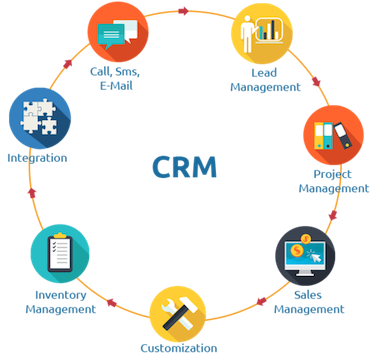As in any other industry, efficient transaction management is the key to success in the modern world. A clean and optimized CRM system is central to the effective and efficient running of lead management and eventual transaction processes. Understanding how the systematic approach to CRM data cleanup can help manage real estate transactions, the leads’ conversion rate, and the market insights will result in better outcomes for the agents’ work and the client’s satisfaction.
The importance of CRM data cleanup in real estate transactions
Real estate business demands a strong, healthy Customer Relationship Management (CRM). CRM data cleanup offers several key benefits:
- Improved lead management: Helps in making sure that agents have clean and well-categorized data to improve lead nurturing and conversion rates.
- Enhanced transaction efficiency: Automation minimizes data error and application of unnecessary procedures and thus enhances the efficiency of transactions.
- Better market insights: Clean data helps the agents gather all the necessary information for making distinctive decisions and answering the competitive market challenge.
Increased Client Satisfaction: Current information makes it easier for agents to assist clients hence enhancing the flow of service delivery and more client satisfaction.
Why clean CRM data is essential for transaction management
Erroneeless and accurate transactions in real estate are a result of maintaining clean data in CRM.
Enhancing lead management and conversion rates

Clean CRM data simplifies lead management by:
- Organizing leads by status: The wealth of information means that the agents can quickly find out where each of the leads is in the transaction cycle so that no opportunity gets lost.
- Improving communication: This would mean having clean data so that all interactions with the clients are documented and the agents can continue the engagement with the leads in the same manner.
- Reducing time spent on data entry: That means when CRM data is neat and kept to current standards, agents cannot waste time on rectification or searching for the data.
Boosting lead conversion rates
A well-maintained CRM system enhances lead conversion by:
- Providing accurate client profiles: Clean data enables the agent to build a complete client profile, which is vital in the identification of client’s needs and demands.
- Enabling targeted marketing: Relevant market data segmentation helps marketing campaigns project the right message to the appropriate target group thus increasing the likelihood of converting leads into clients.
- Facilitating timely follow-ups: This way, it is possible to continue the lead’s interaction with relevant actions and steps, thus making the transaction process smooth and productive.
The impact of clean data on market analysis
Clean CRM data is crucial for gaining accurate market insights, as it allows agents to
- Identify emerging trends: The availability of accurate information enables agents to ascertain new trends in the market, for instance, changed buyers’ trends or fluctuations in the demand for properties.
- Analyze market performance: Clean data also helps agents evaluate their listings and marketing returns and gives them the tools to make their decisions based on the data collected.
- Segment the market effectively: It provides an accurate way of categorizing the market to different parameters for instance geographical location, price range, and property type hence the right marketing techniques can be applied.
Improving decision-making
Clean CRM data improves decision-making in real estate transactions by
- Providing accurate sales data: Agents have efficient data at their disposal in CRM which can help in keeping track of sales trends and consequently in setting the right price; in use of efficient marketing strategies; and in negotiations.
- Enhancing property valuations: Having cleaned data, agents can conduct better property valuations which will help them to list their properties cheaper or attractively to…other agents.
- Optimizing negotiation strategies: They enable the agents to make more informed decisions since the client’s necessities, competitive rates, and property features and attributes are always updated.
Implementing effective CRM data cleanup strategies
Roles and solutions for keeping clean CRM data in real estate practical in 2020.
Conducting regular CRM data audits
Subsequently planning the frequency of data audits is vital to ensure that data stored in the CRM is accurate and consistent. To maintain data integrity:

- Set up regular review schedules: Schedule regular times to perform data audits to try to find out if there is some wrong data or data that has become obsolete.
- Eliminate duplicate entries: This can be achieved by the use of CRM tools where it is possible to detect and eliminate the duality of records where one client or lead has been input numerous times but should only be input once in the system.
- Update client information: Ensure that the information on the CRM relating to clients is updated often with options, contacts, and details of transactions done.
Automating data cleanup processes
Automation can make CRM data cleanup more efficient by :
Automating data validation: Customize data entering aspects by using the CRM tools that have features for the validation of data entered.
- Setting alerts for data issues: Take advantage of the CRM features that alert the agents about the likely data discrepancy that includes missing or inconsistently captured data.
- Automating data cleansing: Appoint CRM automation tools to maintain and update the data at frequent intervals so as to run the CRM system most effectively.
Organizing data with custom fields and segmentation
Improving Data Organization for Better Management. Effective data organization is key to maximizing the value of CRM data:
- Create custom fields: Configure fields in CRM for specific information that may be relevant to the transaction process in the real estate sector, including preferred properties, stages of the transaction, and how clients are to be contacted.
- Segment leads for targeted outreach: Lead segmentation should be used to sort the leads according to the budget, geographical location, and transaction process, it will help in better follow-ups.
- Standardize data entry: Adopt common ways of entering data in databases: for example, combining using the same abbreviations, or contact information, to maintain the data’s accuracy and uniformity.
Simplifying data management for agents
Simplified data management processes can reduce the burden on agents and improve overall data quality: Simplified data management processes can reduce the burden on agents and improve overall data quality:
- Implement user-friendly CRM tools: Relatively select CRM tools that can be easily adopted by the agents and these should be designed with a cohesive structure that fosters consistency among the data input and storage.
- Provide ongoing training: Set up scheduled training that will help anybody who has not mastered the functionality of the CRM or the need for data accuracy in the system.
Best practices and tools for continuous CRM optimization
Cleaning of CRM data entails following the right procedures and this only happens when the right tools and practices are applied.
Leveraging CRM tools for continuous improvement
Several CRM tools and features can help agents maintain clean and organized data: Several CRM tools and features can help agents maintain clean and organized data:
- Data management software: Most of the CRM software includes easy-to-use data management tools to help users in cleaning and categorizing their leads and clients.
- CRM integrations: At least, connect CRM with other systems, it could be e-mail marketing management or social networks, so all information is united and will be actual.
- Automated data cleansing: Maintain CRM automation characteristics in cleaning and updating the data so that the system remains up-to-date.
Establishing best practices for data management
Implementing best practices for CRM data management ensures that the system remains an effective tool for real estate agents: Implementing best practices for CRM data management ensures that the system remains an effective tool for real estate agents:

- Documented data entry processes: Establish Standard Operating Procedures for data input which must include how information needs to be input into the CRM, how such data has to be updated, and how data has to be arranged in the system.
- Regular training sessions: This includes the following; Provide a get-together seminar to refresh their memory on CRM best practices, and updated and new features to look up to.
- Ongoing data audits: Bi-weekly data should be audited and when data is wrong, it should be rectified to ensure that the CRM system is efficient and free from any distorted information.
Long-term benefits of CRM data clean up in real estate
Purified CRM data is a component that is essential in minimizing the time spent in the management of real estate transactions. The routines of data sanitation can be employed by agents that will enable them to decide the right tools to use so that their CRM remains a strategic business tool for managing leads, improving the market understanding, and expanding the enterprise. A maintained CRM enhances the effectiveness of the business’s daily activities and also prepares the agents in a way that they can compete effectively whenever there is a shift in the market hence high leads conversion rates and steady business fortune in the real estate sector.
Conclusion
As the market becomes more and more saturated, keeping CRM lists clean for real estate agencies is crucial for effective transactions and client satisfaction. When adhered to, the intervention strategies and practices fleshed out in this piece will help agents retain their CRM as a leverage point in the handling and analyzing of leads as well as the transactional processes in the marketplace. Maintenance of the CRM will ensure the agents remain relevant and profitable in the real estate market in the long run.





Leave a Comment